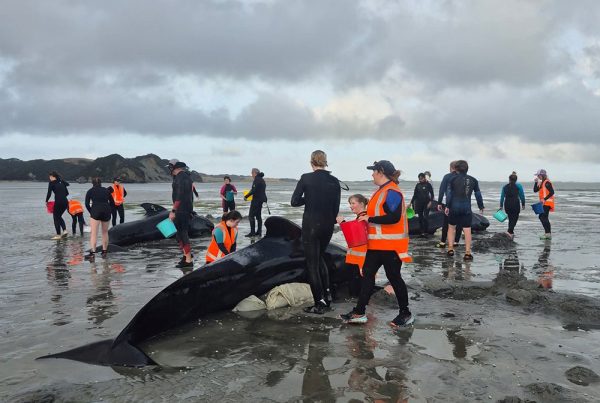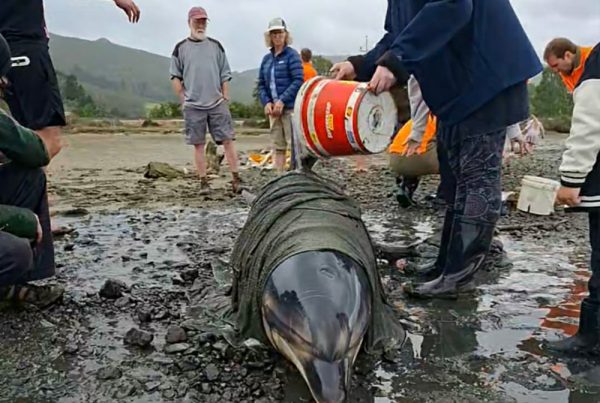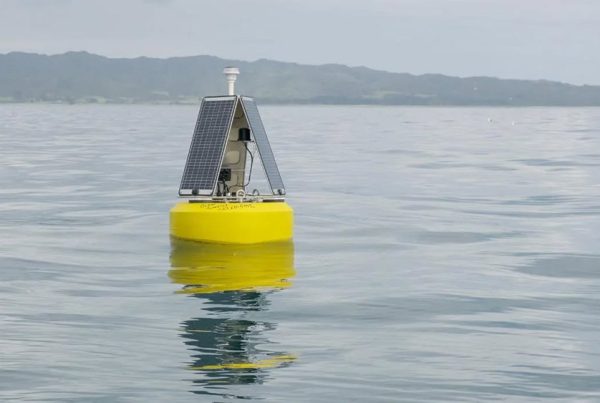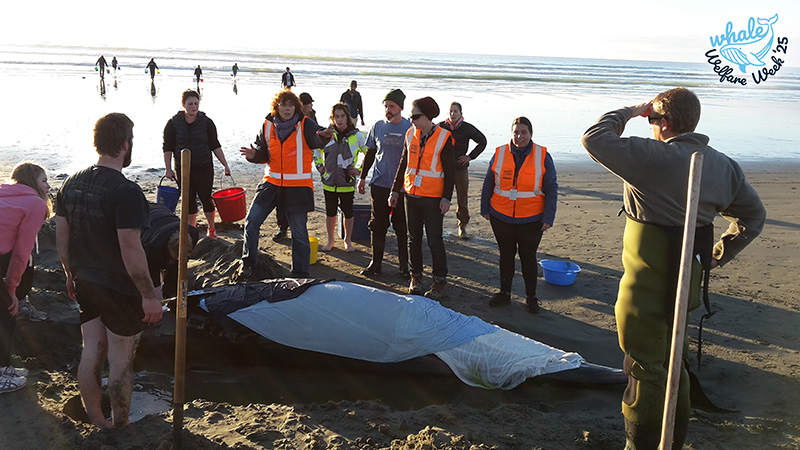
At Project Jonah, the welfare of whales is at the heart of everything we do. Strandings are complex, emotional events, and every decision – from assessing a whale’s health and behaviour to considering species, location, and available resources- is guided by one principle: the welfare of the whale.
Over the years, our team has developed a careful approach that balances compassion, practicality, and expertise. Here’s a look behind the scenes at the factors that influence how we respond when whales strand.
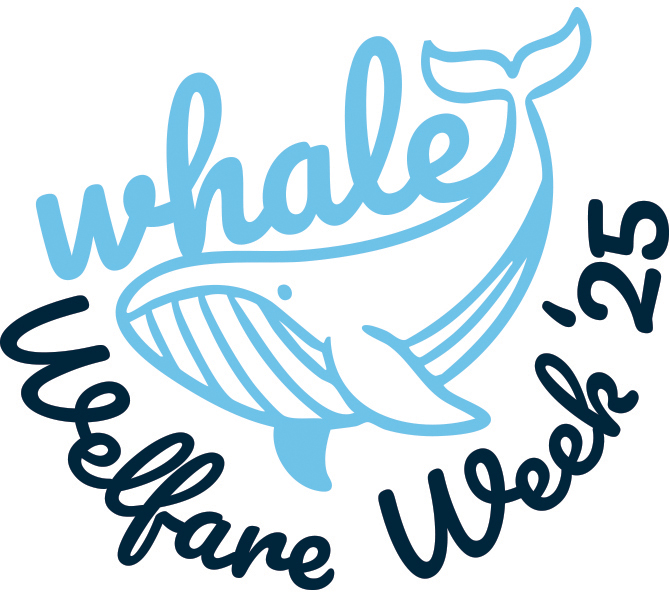
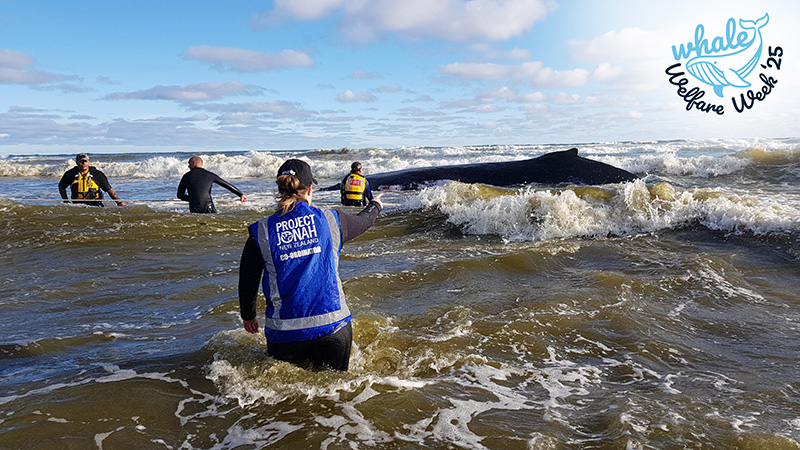
Species and Size
Did you know that some whale species are more likely to survive a stranding than others? Species, health, and size all play a big role in our decisions when a whale strands on the beach.
Some whale species strand more often but can often be refloated successfully if help arrives quickly. Others strand when very sick, making survival much less likely.
Size matters too. Larger whales require more resources, specialised equipment, and significant effort to move, making refloating operations more challenging.
While we care for every stranded whale, sometimes we consult with other agencies (Department of Conservation and local Iwi) about euthanasia to prevent prolonged suffering. But whenever possible, healthy whales are carefully returned to the sea, giving them a second chance.
Location, Location, Location
Where a whale strands can make a big difference. Remote or hazardous locations can make rescue efforts difficult or even dangerous.
Our team assesses each site carefully, considering terrain, distance from resources, and any potential hazards. Tidal patterns and weather also play a key role: high tides can help refloat a whale, while low tides or storms can make rescue operations unsafe. By carefully evaluating these factors, we aim to maximize the chances of a successful rescue while keeping our team safe.
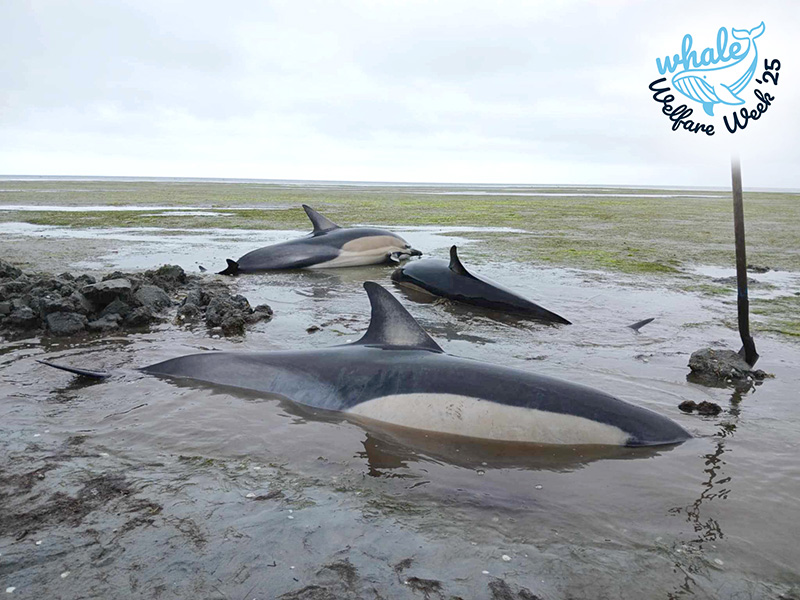

Understanding Whale Behaviour
Whales often show behaviours that indicate distress or disorientation. Our team carefully watch for these signs to decide the best way to help. For example, a whale that is highly agitated or repeatedly stranding may have a lower chance of survival, even if refloated.
Social bonds are also very important. In mass strandings, relationships, like one between a mother and calf, can influence our actions. Trying to refloat a young calf without sight of its pod can cause more harm than good or lead to re-stranding.
By observing behaviour and social dynamics, we aim to make welfare-centred decisions for every whale. Whenever possible, healthy whales are guided safely back to the sea.
Health and Condition
When a whale strands, its health is always a priority. Our experienced team works in collaboration with other agencies to thoroughly assess each whale for injuries, illness, and stress levels.
Severe injuries, such as broken bones or deep wounds, and signs of chronic illness, disease, or starvation can greatly reduce a whale’s chances of survival. In some cases, euthanasia may be the most humane option to prevent prolonged suffering. This decision is never taken lightly and every choice made is guided by the whale’s welfare.
Whenever possible, we carry out health checks and work to return healthy whales safely to the sea. Many animals are able to recover and swim away, thanks to careful monitoring and expert care.
Our team works closely with DOC, local Iwi, specialist scientists and marine biologists to recognise the signs of distress and poor health.
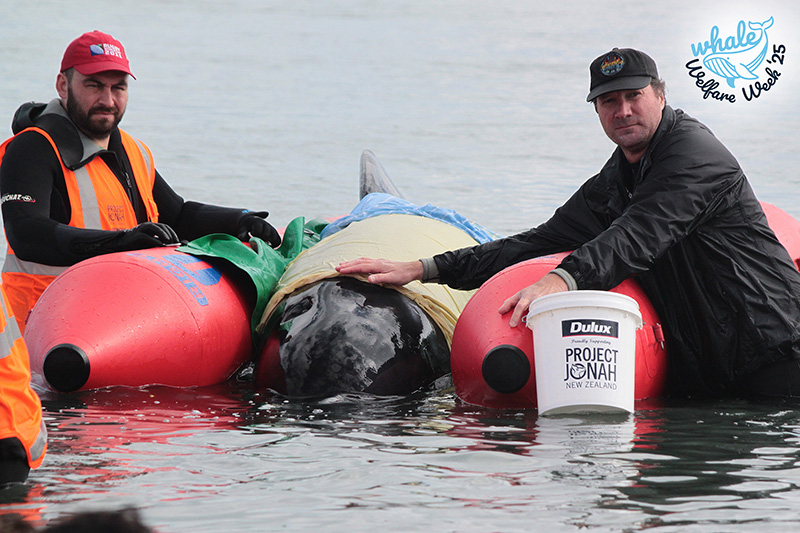

Rescue Equipment and Expertise
Successful rescues rely on the right equipment and experienced personnel. Specialised gear like lifting mats and rescue pontoons are essential for safely refloating stranded whales. In fact, the pontoons Project Jonah developed are now used by whale rescue teams around the world! Our rescue trailers are strategically positioned around the country to ensure this equipment is ready whenever and wherever it’s needed.
Equally important is our team of trained Marine Mammal Medics. They bring the skills and experience needed to assess a whale’s condition, plan a safe refloat, and help keep people safe.
By combining innovative equipment with expert care, we give stranded healthy whales the best possible chance of returning safely to the sea.
How You Can Help
If you see a stranded whale or dolphin, please do not try to push it back into the water yourself. Instead, call our 24-hour hotline for expert guidance: 0800 4 WHALE (0800 4 94253)
Your call could make the difference in ensuring a whale is safely assessed, cared for, and given the best chance of survival.
